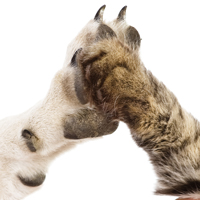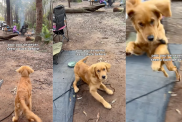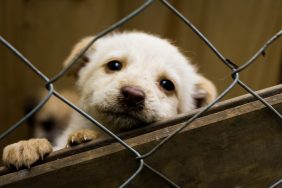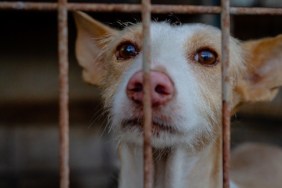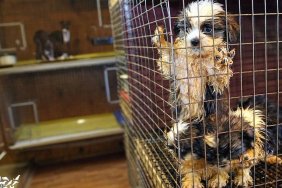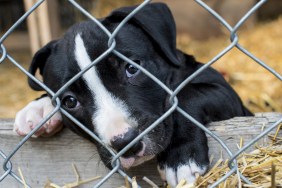In May 2012, DogTime.com first told you about the United States Department of Agriculture’s (USDA) proposed plan to close a longstanding loophole in the Animal Welfare Act that allowed commercial breeders to sell animals over the Internet to unsuspecting buyers without having to worry about operating under government-mandated animal welfare standards. The dogs, cats, rabbits, and other animals in these large-scale online mills languish in horrible condition, stuffed into small cages, covered in their own waste. These animals are often exposed to the elements, suffer from chronic illnesses, and rarely if ever receive veterinary care.
Consumers who purchase these pets online typically buy the animal sight unseen, and therefore have no clue about the substandard conditions in which the pet is bred and raised.
“These people will put a picture of a darling puppy on the Internet,” The Puppy Mill Project founder and president Cari Meyers tells CBS News, “however you don’t know if you’re going to get the same puppy. You know more about a car when you buy a car.”
But the USDA hopes to change all that, announcing Tuesday new regulations that will force online breeders to apply for federal licenses, making them subject to the same government oversight as other commercial pet breeders. USDA Animal and Plant Health Inspection Service administrator Kevin Shea tells the Huffington Post says the logic behind the organization’s ruling is that either government inspectors, buyers, or both will now see the animals before the pet is sold.
By USDA estimates, up to 4,640 dog breeders, 325 cat breeders, and 75 rabbit breeders will be affected by this new rule, hopefully putting pet mills out of business and improving conditions for breeding animals across the country. So-called “hobby” breeders, defined as small-scale breeders who breed three or less females, are not impacted by the new regulations.
In Congress, praise for the new rule is pouring in from both sides of the aisle. Sens. Dick Durbin (D-Ill.) and David Vitter (R-La.), who have long spoken up against unscrupulous breeders, say the USDA’s decision to impose regulations on the sale of animals over the Internet will make a big difference for our nation’s pets and consumers alike.
“Too often, the media reports stories about dogs rescued from substandard facilities — where puppies are housed in stacked wire cages and routinely denied access to veterinary care,” Durbin said in a statement. “Unfortunately, online dog sales have contributed to the rise of these sad cases. Today’s announcement by the USDA brings much needed oversight to the previously unregulated business of online breeders and puppy mills.”
“Finalizing this rule is a big step forward in ensuring that puppies are treated humanely and bred in safe and sanitary facilities, and that consumers can purchase healthy pets for their families,” Vitter said shortly after the USDA’s announcement.
Animal welfare groups across the country are also applauding the USDA’s ruling, including The Puppy Mill Project.
“This is fantastic,” Meyers exclaimed shortly after hearing the good news. She and her organization have lobbied long and hard against online pet breeders. “Now these people are going to come under the same scrutiny as other breeders. They’re going to have to answer to somebody. Somebody’s going to be minding the store, which has never happened before.”
Wayne Pacelle, president of the Humane Society of the United States (HSUS), says that while these new regulations are a huge step in the right direction, there is more to be done to close puppy mills and kitten factories for good.
“Puppy mills aren’t going away overnight,” Pacelle writes on the HSUS site, “and it’s still important for any potential puppy buyer to meet the breeder in person at his or her facility to see how and where a puppy was born and raised.”
“But this rule has the potential to allow federal inspectors to peer behind the closed doors of puppy mills and improve the lives of tens of thousands of animals,” he continues, calling it “a change worth celebrating.”
Sources: HumaneSociety.org, Huffington Post, CBS News
